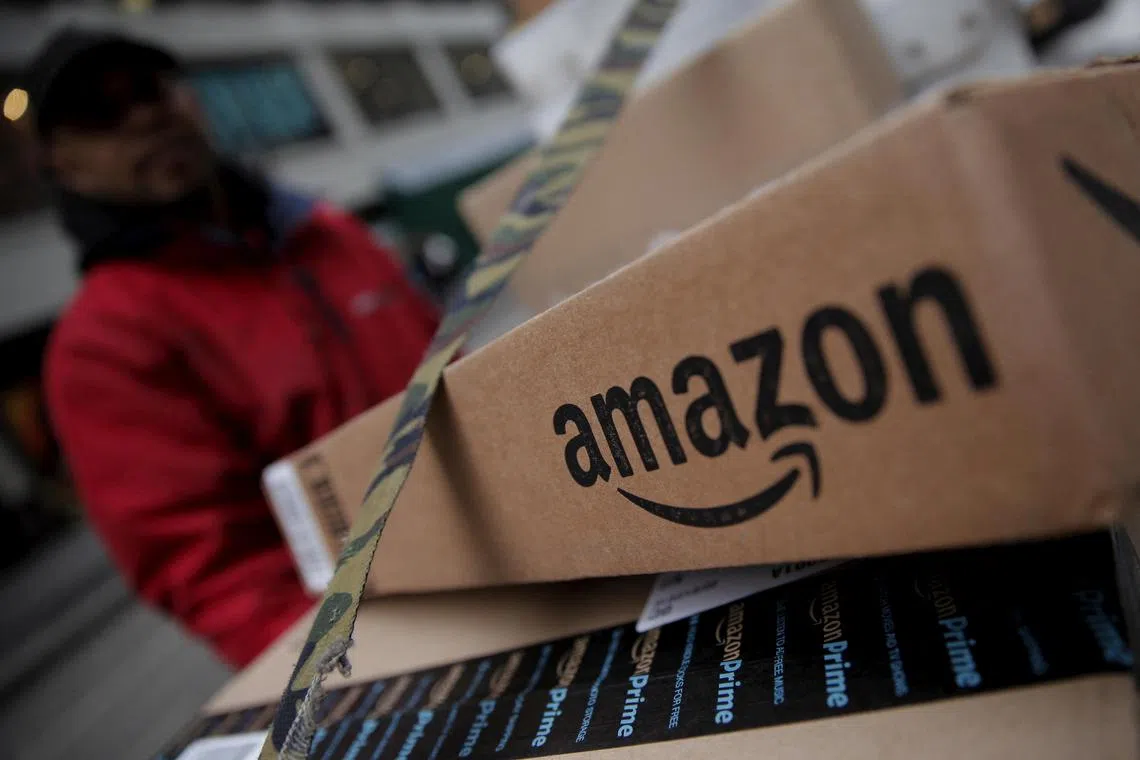Amazon running illegal monopoly in online retail, says US
Sign up now: Get ST's newsletters delivered to your inbox

The Federal Trade Commission, which was joined by 17 states in the case, said Amazon broke antitrust laws in two ways.
PHOTO: REUTERS
WASHINGTON – A top United States antitrust regulator sued Amazon on Tuesday, accusing the online retail behemoth of running an illegal monopoly by stifling potential rivals.
“Our complaint lays out how Amazon has used a set of punitive and coercive tactics to unlawfully maintain its monopolies,” said Federal Trade Commission (FTC) chairwoman Lina Khan.
The FTC, which was joined by 17 states in the case, said Amazon broke antitrust laws in two ways.
In the first instance, the case alleges Amazon punishes companies that sell items elsewhere at lower prices by ranking down their products on the site.
It also coerces sellers into signing on to Amazon’s “costly” fulfillment service in order to be exposed to its Prime customers that are the site’s biggest and most catered-to users, the FTC said.
“Seldom in the history of US antitrust law has one case had the potential to do so much good for so many people,” said Mr John Newman, deputy director of the FTC’s Bureau of Competition.
Amazon said it firmly rejected the premise of the case.
“Today’s suit makes clear the FTC’s focus has radically departed from its mission of protecting consumers and competition,” said Mr David Zapolsky, Amazon senior vice-president of global public policy.
“The lawsuit filed by the FTC today is wrong on the facts and the law, and we look forward to making that case in court,” he added.
The case is hugely symbolic for Ms Khan, who made her name in academia for questioning whether antitrust laws were fit for purpose in the digital age, in a paper entitled Amazon’s Antitrust Paradox.
Her celebrated paper was a retort to a seminal work by conservative scholar Robert Bork that said enforcers of fair competition should leave mergers alone, unless a clear risk of higher prices and a threat to consumers could be proven.
Written in the 1970s, that philosophy guided the government’s attitudes and influenced the judges deciding the biggest cases today.
US President Joe Biden in 2021 picked Ms Khan to lead the agency in charge of safeguarding the interest of consumers and preserving a level playing field for businesses.
Her track record since taking the job has been chequered, after a series of court defeats sowed doubt she will put an end to decades of Washington’s light-touch approach to antitrust regulation.
In July, Ms Khan was handed her latest loss when a federal court threw out her agency’s objection to Microsoft’s US$69 billion (S$94 billion) buyout of video game giant Activision.
She suffered an earlier defeat in the same San Francisco courtroom, when a judge said FTC’s opposition to Facebook-owner Meta buying Within, a virtual reality software company,


